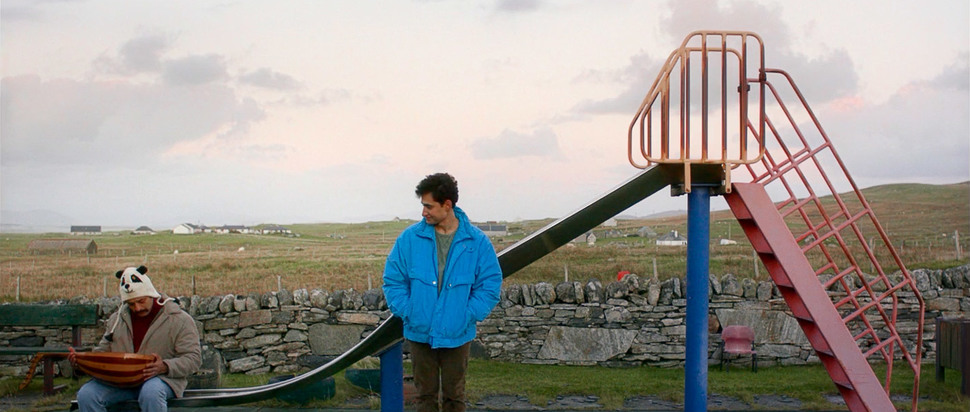Limbo
Scottish filmmaker Ben Sharrock blends absurdist humour and deep pathos to tell the story of a group of refugees left adrift on a desolate Scottish island as they wait for their asylum claims to be slowly processed
Limbo explores the experience of refugees living in Scotland, but leave any preconceptions you might have at the door. Director Ben Sharrock avoids the usual miserablism associated with cinema of these shores, mining instead a more drolly comic register as he follows the lives of several migrants waiting indefinitely for their asylum claims to be processed on an unnamed island.
The film was shot on the normally picturesque Uist, but here its dour weather and even dourer inhabitants suggest purgatory as much as limbo, with lonely phone boxes, deserted playgrounds and eerily-lit bus stops the only shelter from frosty winds. Forbidden from working and given barely enough to live on, the refugees – all “low priority” single men – kill time watching Friends boxsets between attending patronising cultural awareness classes that leave them feeling even more adrift.
Limbo is at its most poignant when focused on Omar (El-Masry), a celebrated Syrian musician who’s carrying a lot of baggage. We’re not just talking about his instrument of choice, the oud, which is a constant by his side even though he doesn’t have the spirit to play it. So much of the film plays out on his handsome, hangdog face, with Sharrock prone to gently turning his usually static camera off into space when the pathos gets too much to bear.
Sharrock's visual sensibility recalls the fastidious fairy tales of Aki Kaurismäki as well as the more symbolic, spiritual filmmaking of Iran. Flecks of hope break through the darkness, as do absurdist sight gags, but that doesn’t dampen in the slightest Limbo's emotional power or political substance.
Limbo is released in UK cinemas on 30 Jul, and streaming from 23 Sep on MUBI; Limbo had its Scottish premiere at Glasgow Film Festival 2021
